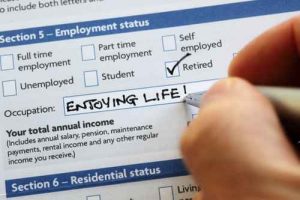Publication date: 1 March 2016
Money, money, money! One way or another we’re all affected by the stuff. So, understanding the basics of finance, getting acquainted with its intricacies, and generally improving our ability to manage money should be a top priority for everyone.
In the countdown to European Money Week 2016, we offer you 20 tips to make your financial life easier:
- Understand your financial situation. The first step to being able to manage your money is to know where you stand and which steps you can take. Be realistic and take the time to analyse the situation until you feel comfortable enough to make decisions.
- Set financial goals and plan how to reach them. Being organised and respecting the plan will help you achieve successful financial management.
- Read your financial documents carefully and be aware of all obligations. Apply the Latin motto ‘Ignorantia juris non excusat’ (Ignorance of the law is no excuse) to your finances and be well informed so as to avoid costly mistakes.

- Keep an eye out for new scholarships, grants, financial aid. You never know when the opportunity of help from the state or private sector will arise.
- Understand your loans. The terms of a loan need to be completely clear. If in doubt, seek clarification before taking out a loan.
- Don’t forget about retirement. For some people, it may seem a long way off, but when the moment comes, a retirement fund may be the key to a carefree new life.

- Comparisons make sense when it comes to your money. Weigh pros and cons of your various options until you are ready to take a sound decision.
- Don’t let anyone pressure you into unnecessary spending. Money matters are as personal as you want them to be, so think how that spending will affect you and the people you care about.
- Look for ways to save money. Use your imagination and explore new ways to put your money to the best possible use: create a budget and stick to it, look out for discounts, use coupons, re-use, cut out costly habits, and explore different angles before taking a financial decision.
- Set aside a small percentage of your income for unexpected costs. This is an unpredictable world, so building up emergency savings is a sensible idea and need not affect greatly your monthly budget.

- Pay off all your bills and debts first. This is the only way to avoid costs adding up and getting into unnecessary debt.
- Keep tabs on your credit card. If possible, own only one credit card, shop around for the best rates and fees and set limits.
- Invest wisely. Research investment opportunities that are right for you and take advantage of compound interest.
- Track your expenses. This habit will help you realise how you spend your money and act accordingly.
- Regularly check your bank statements. The money you have and the money you think you have don’t always match. Before having any nasty surprises, be always well informed of your status and report any irregularity.
- Know the difference between luxuries and necessities. You know yourself better than anyone so take some time to carefully think about what you can afford, what you would like to have and what you actually need.
- Always be honest on your tax declaration. Be realistic when entering your expenses, keep your receipts close and consult an advisor if you have doubts.
- Know where your money goes. It may seem more financially responsible to buy a 5 euros shirt than a basic 30 euros shirt, but then you are ignoring the quality factor.
- Rebalance your portfolio once a year. Take a look at your brokerage account regularly to make sure your investment allocations still match your goals.
- Become financially independent and self-reliant. The old maxim of Work to Live, Don’t Live to Work applies here – control your money so that it does not control you!






